What steps should you take with regards to your patent and scientific literature searches that will help eliminate your risk and take your search results to a new level? Below are three essential elements to successfully engaging an outside search professional for finding critical prior art references.
ELEMENT 1: Define the Task
It stands to reason that lack of adequate planning in defining the scope of a patent search project will inevitably lead to results that are off-track. Putting sufficient effort into defining the objectives and scope of the search up-front will orient the search strategy and pay dividends in terms of more effective search results. That is true for any prior art search, whether for freedom to operate, invalidity, patentability, due diligence, patent landscape, competitive intelligence or other purpose.
An initial search interview at the start of the process and ‘beginning with the end in mind’, will help not only to define the search focus and data sources to be used, but also to ensure the best use of budget. A trusted patent search firm will know the right questions to ask in order to focus the search appropriately and will increase your confidence in knowing that your expectations will be met, allowing you to leverage the search results provided.
In addition to providing clarity on the technical specifications for a search, sharing what else you know about the search background with your search firm is vastly more valuable than holding back information in order to ‘test’ the credibility of the results that you receive once the search has been completed. The following questions can be revealing:
- Are there any pertinent references that are already known?
If so, these can often be leveraged to find other associated references of potential interest. For example, analysis of how a key reference has been indexed within different databases can help with uncovering references that might not be discovered by keywords or standard classifications alone. - Are there certain assignees, inventors or authors that are linked with an aspect of the technology being searched?
This can lead to investigating scientific collaborators and institutions around a certain time period. - Are there particular geographic locations or languages that might be expected to yield unique results?
Many search firms may review the initial easy-to-access resources but fail to tap into regional or language-specific resources that may uncover references that are unique and have never been considered for prior art previously, e.g. by an examiner. Such tech-rich references could be in Japanese, Korean, Mandarin, German, Russian or Hebrew, to name but a few. Especially for foreign-language references, searchers should indicate why a reference was selected to give the client an idea of the level of potential relevance and whether a translation of the reference in whole or part should be considered. - What information sources may have already been searched?
Don’t waste valuable budget and resources in searching over the same ground – sharing with your search provider what search territory has already been covered will allow for a search approach that will build upon your initial search investment and open up the possibility of finding additional useful references.
Your patent search firm should carefully assess the information you provide to formulate a detailed search proposal that gives recommendations, pricing and timing for different search options for your review. These options should clearly lay out what is included (and specifically what is not included) in the search to be conducted and may also indicate primary, secondary or tertiary search approaches — the primary approach normally represents the most potential return on the budget, whereas the secondary and tertiary approaches will represent successive levels of depth for potentially finding more obscure references, but normally at the cost of diminishing returns budget-wise.
ELEMENT 2: Assess the Capabilities
Once the objective and the focus for the search have been defined clearly, this leads to our second point – that the person conducting the search must have the right capabilities in order to provide meaningful results. This is a combination of not only educational background in the target subject area, but also many years of practical, hands-on experience in conducting searches, coupled with a sound knowledge of what constitutes prior art or how a scientific reference may have a bearing on the search topic.
Generally speaking, the longer that a person has been searching professionally, the more efficient and refined his or her search techniques are going to be. With experience comes the knowledge of not only which information sources to use, but also how to approach a search to ensure recall of pertinent references while avoiding system pitfalls that would cause loss of pertinent information.
Success rates show that those who have worked as professional searchers within a corporate patent department or information specialist setting within an R&D focused corporation are more adept at using a full range of databases and tools and are acutely aware of database limitations (including changes in database indexing policy over time) and how to compensate accordingly. This means that choosing a search firm that values prior professional search experience within a corporation greatly reduces the risk of exposure from poorly conducted searches by novice searchers with educational background alone and who may be unaware of changes in database indexing policies. Added to this, seasoned searchers have lived and searched through the technology boom and know how technologies have developed over the last one-to-two decades, meaning that they are more attuned to what type of prior art references are likely to be out there.
ELEMENT 3: The Drive to Succeed
The last element and pre-requisite for a successful search outcome can be regarded as the catalyst in the mix. It is the somewhat elusive element that can take your results to a new level when choosing your technical search provider. The third and final element in the trio is passion.
Simply stated, in the absence of passion, there is an absence of success. Passion is the vital driving force that differentiates between Searcher ‘A’ who may be focused on implementing search procedures in order to move to the next project, compared to Searcher ‘B’ who is internally motivated to systematically and compellingly find the information that will have an impact on the search objective.
Such passion is seen as the ‘thrill of the hunt’, where the mindset of the search professional is trained to assume that there is a reference that exists out there and that their mission is to find it using their tenacity and deep-rooted searching skills. It is the same passion that is often seen, for example, when litigators sharply focus on their mission of killing a rival patent dead in its tracks, and giving their all to achieve it.
Combining All Three Elements
The search firm you engage should hold strong to the traditional values of searching and the three essential elements to ensuring effective search results. Their hiring policy should be directed towards securing experienced searchers who have been raised in an industrious, in-house environment, and who are committed to the art of searching and the mission of the hunt.
Searchers who are evaluated and selected based on their experience and passion for searching consistently provide more reliable strategies with on-target analysis, and go that extra mile to find the references that count. It is recommended that search professionals ideally hold 10- 15 years of prior searching experience in their specialist field, giving them a head start that no new post-graduate can even begin to replicate for many years to come.
With so much riding on each search outcome, corporate executives, patent attorneys and patent litigation experts simply can’t afford to skimp on the foundation that supports so many critical offensive and defensive IP and corporate business decisions.
Article contributed by:
Trudi Jones, Vice President of Technology & Patent Research International, Inc.
Trudi Jones studied Chemistry at Kings College, London University, and started her professional career by developing databases for providing patent, scientific and technical information to research-based organizations. In the early 90’s, Trudi co-founded Technology & Patent Research to fulfill the unmet need for a high-level search firm that could support Information Professionals and Patent Attorneys by providing searching and analysis services in support of their work. TPR has been successfully providing support to corporations and law firms across all technologies ever since and continues to set the standard for professional search services.
© 2020, Technology & Patent Research International, Inc.


